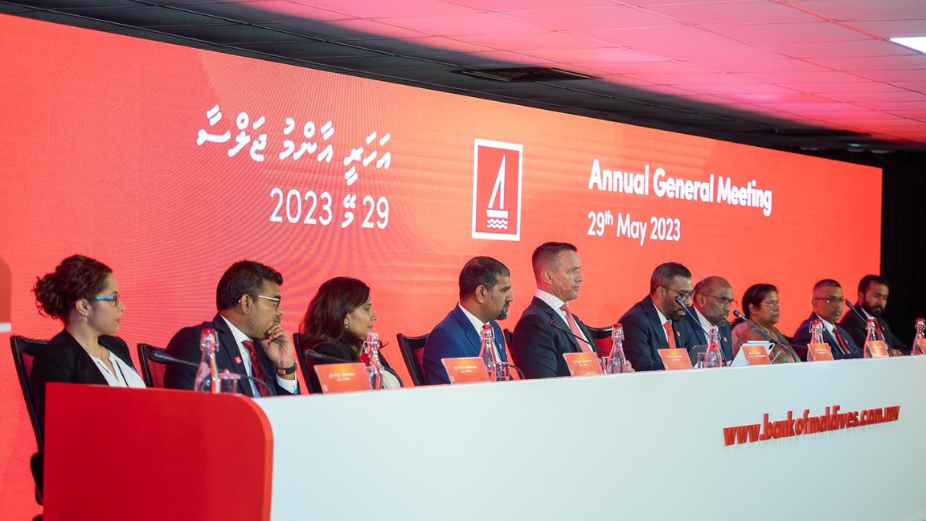
For years, the Bank of Maldives (BML) has faced mounting criticism from the public over its handling of various financial issues, ranging from negligence in preventing theft to questionable internal practices. The growing dissatisfaction has led to a severe decline in public trust in what is supposed to be the nation’s premier financial institution. At the heart of the controversy lies a series of unresolved complaints that point to systemic failures within the bank, failures that continue to challenge its credibility and operations.
A Legacy of Negligence and Inaction
One of the most enduring criticisms of BML is its lack of cooperation in addressing theft from public accounts. Numerous customers have reported falling victim to scams that exploit loopholes in the bank’s policies and systems. Despite clear evidence of these vulnerabilities, BML has repeatedly declined to assist customers in recovering lost funds, often stating that there is nothing they can do. This inability or unwillingness to trace and recover stolen money has not only exposed weaknesses in BML’s risk management but has also amplified concerns about the bank’s commitment to protecting its customers.
A striking example of BML’s inconsistent policies emerged in a recent incident where the bank mistakenly deposited more than its entire capital into several accounts. Within two hours, the bank managed to reverse the erroneous deposits without requiring the recipients’ cooperation. This swift action stands in stark contrast to the bank’s usual stance of inaction when ordinary customers mistakenly transfer money to the wrong accounts. Under normal circumstances, BML places the onus entirely on the customer to negotiate a refund from the unintended recipient, claiming it cannot intervene beyond its established rules.
Questions of Fairness and Transparency
The recent mishap involving a USD 77 billion deposit error, an amount that far exceeds the bank’s actual capital, has raised serious questions about BML’s internal controls and transparency. How could such a significant error occur in the first place? And why does the bank demonstrate agility in correcting its own mistakes but shows reluctance when dealing with the mistakes of its customers? This inconsistency has fuelled public frustration and reinforced perceptions of double standards within the institution.
The decline in BML’s standing is not limited to its handling of theft and mistaken transactions. In high-profile cases, such as the Maldives Marketing and Public Relations Corporation (MMPRC) scandal, the bank’s negligence was laid bare. The scandal involved the embezzlement of millions of dollars through complex money laundering schemes that went unnoticed for far too long. Even more troubling was the departure of then-CEO Andrew Healy, a foreign national, who left the country shortly after resigning, leaving many questions about accountability unanswered.
A Deepening Crisis of Confidence
The perception of preferential treatment and discriminatory practices at BML is another source of public anger. Ordinary customers have long complained that the bank scrutinises them excessively when depositing large sums, often resulting in account blocks if they fail to provide satisfactory answers. Meanwhile, allegations persist that powerful business figures have been able to commit large-scale financial crimes, such as securing massive loans against non-existent properties and defaulting on repayments, with little to no repercussion.
BML’s recent decision to restrict card transactions abroad further exacerbated public dissatisfaction, especially among students studying overseas, small-scale importers, and travellers. This move triggered a sharp increase in dollar rates on the black market, creating additional financial burdens. The outcry was so severe that there were predictions of protests and public demonstrations had the decision not been reversed.
These developments have led many to question the independence of BML’s board of directors, particularly when their decisions seem to run counter to government interests. Although the board has complete autonomy over the bank’s operations, the government remains its largest shareholder. It is reasonable to expect that the government should have some influence over significant decisions that could destabilise the financial market. The current “disconnect” between the bank and its largest shareholder only adds to the confusion and frustration felt by the public.
Calls for Reform and Accountability
The series of controversies surrounding the Bank of Maldives highlights a critical need for reform. The current climate of distrust, shared by both government officials and the general public, points to a deep-rooted problem in the institution’s governance and operational ethics. The accusations against BML, from negligence to discriminatory practices and allegations of favouritism, illustrate the urgent need for a fundamental change in how the bank manages its relationship with its customers and stakeholders.
As the largest bank in the Maldives, BML has a responsibility to act in the best interests of the people. However, it appears to be faltering in this duty. The consistent erosion of public trust, coupled with a perceived lack of accountability among its leadership, suggests that unless significant changes are made, the bank may continue to face mounting challenges both from within and beyond.
The future of the Bank of Maldives depends on its ability to restore public confidence and operate transparently. The calls for a more accountable and equitable financial system are louder than ever, and BML must heed them if it hopes to remain a cornerstone of the Maldivian economy.











